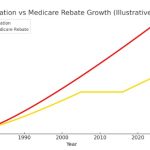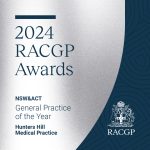ATAGI released recommendations for the 3rd dose of COVID-19 vaccination
HHMP will offer the 3rd dose of COVID-19 vaccine for eligible patients, basically the severely immunocompromised. It is important to note that this is not a booster shot for the general population or at risk workers. It is for those with a poor immune response to bring them up to the same level as the general population.
The 3rd dose is for the immunocompromised
• Dose 3 is seen as part of the primary course.
• This addresses suboptimal or non-response to the standard 2 doses.
• To maximise immune response to closer to the general population.
• ≥12 years with certain conditions or on therapies. leading to severe immunocompromise.
• The 3rd dose is recommended 2 to 6 months after the 2nd dose.
• Antibody testing is not recommended to check immunity after vaccination.
More Information for the immunocompromised
• Individuals who currently are not severely immunocompromised but who will commence significant immunosuppressive therapy ≥ 2 weeks after their 2nd dose do not require a 3rd dose, as it can be expected that an adequate response to 2 primary doses will be achieved.
• Doses beyond the 3rd dose are not recommended for patients who fail to respond to 3rd doses as these may not respond to further doses.
• Protection from 3 primary doses in severely immunocompromised individuals may still be lower than the general population. People should continue risk mitigation strategies such as mask wearing and social distancing even after receipt of 3 doses.
How about the non- immunocompromised
• ATAGI will provide further advice on booster doses (including for healthcare workers, older adults and the general population) in the near future.
What vaccine will be used for the 3rd dose?
• An mRNA vaccine (Pfizer or Moderna) is preferred to Vaxzevria (AstraZeneca).
• AstraZeneca can be used for the 3rd dose for individuals who have received AstraZeneca for their first 2 doses if there are no contraindications or precautions for use, or if a significant adverse reaction has occurred after a previous mRNA vaccine dose which contraindicates further doses of mRNA vaccine (e.g., anaphylaxis, myocarditis).
A summary list of immunocompromising conditions and therapies for which a 3rd primary dose is recommended
• Active haematological malignancy
• Non-haematological malignancy with current active treatment
• Solid organ transplant with immunosuppressive therapy
• Haematopoietic stem cell transplant (HSCT) recipients or chimeric antigen receptor T-cell (CAR-T) therapy within 2 years of transplantation.
• Immunosuppressive therapies including:
– High dose corticosteroid
– Multiple immunosuppressants
– Selected conventional synthetic disease-modifying anti-rheumatic drugs (csDMARDS)
– Biologic and targeted therapies anticipated to reduce the immune response to COVID-19 vaccine
• Primary immunodeficiency including combined immunodeficiency and syndromes, major antibody deficiency
• Advanced or untreated HIV with specific CD4 count levels
• Long term haemodialysis or peritoneal dialysis
For more details about each of the above criteria please see the ATAGI statement.
The HHMP approach to the 3rd COVID-19 vaccine dose
It is important to note that the information released so far is for the 3rd dose for severely immunocompromised individuals. This is not a booster shot for essential workers or the general population. Basically severely immunocompromised people do not have the same response as the rest of the population, for them a third shot is intended to bring them up to the same level of immunity as the general population. As such we expect that the number of people eligible for the 3rd dose will be quite small.
Identification for suitability for the 3rd shot will be assessed by a doctor on a case by case basis. The doctors may directly contact patients they deem at especially high risk or identify these patients during routine consults. If you think you may be eligible, please book an appointment to discuss with your doctor.
We have plenty of stock of both the Pfizer and AstraZeneca vaccines and vaccination will continue to occur at the vaccine clinic on level 1.






